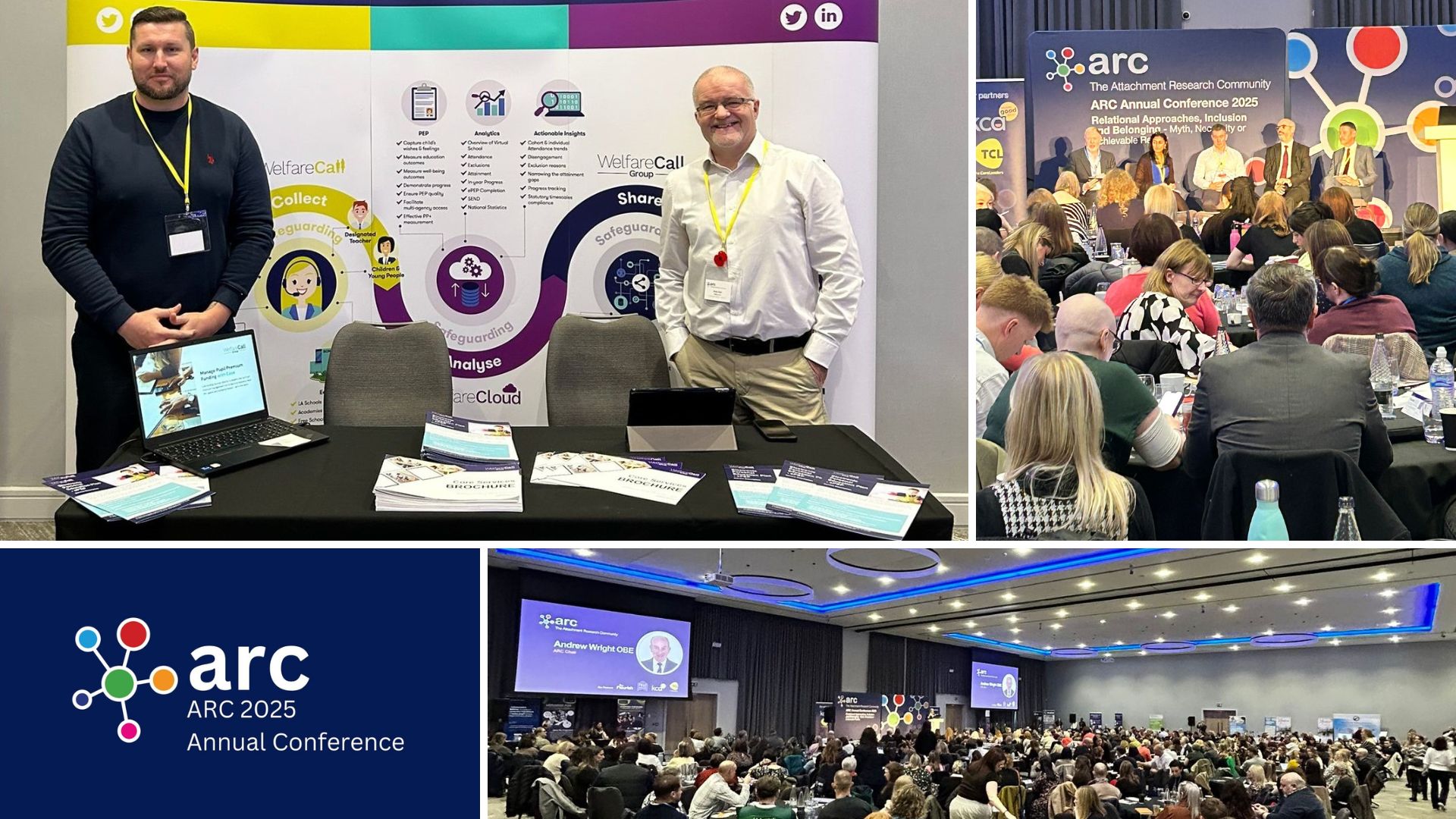ARC 2025 Conference Reflections: Inclusion Needs More Than Good Intentions – It Needs Infrastructure

This year’s ARC 2025 Annual Conference brought together hundreds of professionals from education, all united by a single goal: to build systems where every child belongs.
With a theme of “Relational Approaches, Inclusion and Belonging: Myth, Necessity or Achievable Reality?”, the event created space for both critical reflection and practical insight. Conversations in sessions and over coffee alike revealed what many in the sector already know: inclusion is not a side issue. It’s the issue.
At Welfare Call, we were proud to exhibit and take part in those conversations. As a long-standing partner to Virtual Schools and Local Authorities, we understand the pressures you’re under, and how hard it is to build belonging in a system that isn’t always designed for it.
But what ARC 2025 showed us is this: the commitment to inclusion is there. The challenge now is delivery and that starts with the right infrastructure.
Inclusion can’t happen without clarity
Speakers and delegates at ARC made one thing clear: children can’t thrive if professionals don’t have access to the information they need. Designated Teachers are working flat out to champion pupils, manage PEPs, liaise with services, and advocate for vulnerable children. But they’re often doing so within systems that are fragmented, slow, or lacking visibility. That creates risk.
Inclusion requires intent, but it also needs consistent processes that reduce administrative load, speed up decision-making, and help teams spot problems before they escalate.
The right tools free up time for the work that matters
We heard many examples of how clunky systems slow down support. But we also heard where improvements have been made, particularly where schools and Virtual School teams have access to live data, joined-up case management, and purposeful analytics.
Take PEPs, for example. When they’re easy to use, accessible across teams, and offer consistent prompts and insight, they become far more than a form. They become a collaborative plan, one that supports genuine accountability and helps put the right interventions in place.
The same applies to attendance. Daily visibility helps flag concerns early, spot patterns, and trigger safeguarding conversations before a child slips through the cracks.
Data is powerful — but only if it leads to action
One theme that stood out across the day was how often data is collected but not used. For SEND leads, Virtual Heads, and social workers, this is a daily frustration.
At Welfare Call, we’ve always believed that data should support relationships, not replace them. Our hybrid model — which combines automatic data extraction with human-led school calling — means you get accurate, contextualised, and actionable insight. That’s particularly vital in complex settings like alternative provision, post-16 or small independent schools, where data quality can vary and nuance matters.
As one Designated Teacher told us recently: “We don’t just need data. We need someone who can pick up the phone when the numbers don’t make sense.”
What the sector needs next
The ARC conference made something clear: the will to deliver inclusive education is strong. But it won’t be achieved through goodwill alone. We need to equip the sector with practical, scalable infrastructure that reduces barriers, connects teams, and ensures no child is overlooked.
We need:
-
Tools that reduce administrative burden, not add to it
-
Shared systems that bring education, care, and health closer together
-
Flexible approaches that reflect the reality of how children move through different settings
-
Clear lines of accountability and support
This isn’t about replacing professional judgement with technology. It’s about giving trusted professionals the tools they need to do their best work consistently, and at scale.
Thank you for stopping by
If you visited us at Stand 15 at ARC, thank you for taking the time to talk to us. We value these conversations and always learn from them.
At Welfare Call, our role is to listen, understand, and support the sector to meet its goals. That means adapting with you, helping you respond to new duties, and ensuring that your systems help you do the job . . . not get in the way of it. We’re proud to stand alongside you in building a system where every child feels they belong, not just in principle, but in practice.
If you didn’t get a chance to speak to us at the ARC conference but want to learn more, we’d love to continue the conversation. Whether you’re exploring ways to strengthen your PEP processes, improve visibility of post-16 learners, or better support Designated Teachers with joined-up data, we’re here to help.
Welfare Call works in close partnership with over 95 local authorities because we understand the pressures – and the potential – of this work. If you’d like to hear how others in the sector are tackling similar challenges, or explore how our solutions could support your goals, get in touch. Let’s keep the momentum going.
